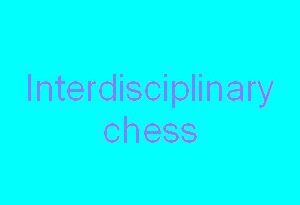The Skills of Future Jobs and Chess
by Ilker Pazarcioglu

The World Economic Forum is publicly known for its annual meeting at the end of January in Davos, a mountain resort in Graubünden in Switzerland’s eastern Alps region.
Over 3,000 people attend the conference, where they spend a week debating world issues with corporate and political leaders, economists, celebrities, and journalists. This organization prepares a “Future of Jobs” report every two years. The report aims to map the jobs and skills of the future.
While examining the “Skills that will be in demand in 2025” section of the report, I realized that many of these skills could be honed through chess, and I wanted to share ten of them with examples, particularly with parents whose children and themselves are devoted to this lovely sport.

These are the skills that will be in demand in 2025, according to the report:

1.Analytical Thinking and Innovation
Chess is similar to a laboratory where you can cultivate your creativity using specific rules and principles. Using what we have learnt, we break down complex positions into smaller, more manageable pieces, and we constantly analyze position throughout the match. And we are continually discovering fresh concepts throughout the course of the game. As every chess player knows, the explanatory symbols in chess language include the letter N, Novelty which signifies innovation.
2.Active learning and learning strategies
I don’t know of any other game that allows you to study and develop systematically, according to a curriculum, and that strengthens your learning muscles. Chess is a sport that constantly feeds people’s appetite for learning 😊

3.Complex Problem Solving
A chess player solves tactical questions on various themes every day and constantly develops complex problem-solving muscles.
4.Critical Thinking and Analysis
Critical thinking refers to the ability to analyze information objectively and make a reasoned judgment. It is a process based on questioning and it involves the evaluation of sources, such as data, scientific evidence and research findings. By constantly questioning the current position, chess enables the emergence of new ideas.
5.Creativity Originality and Initiative.
A chess game is so unique that the probability of two games being the same is 1/10120. The American mathematician Claude Shannon performed this computation in the 1950s, and as a result, it became known as the Shannon number. The estimated number of atoms in the observable universe is 1082

6.Leadership and Social Influence
The qualities you cultivate through chess are also required for leadership. Leaders decide. When you have the initiative in chess, you must continually make fresh options and move. Chess strengthens your decision-making muscles. It also boosts your social influence since it is a highly esteemed sport in society.
7.Technology Use Monitoring and Control
Today, chess is not just a board game. It is a game that can be played on various internet platforms, including lichess, chess.com, and icc, and data may be analyzed with software such as chessbase. The capacity of young children to utilize such applications can also contribute to their overall technological domination.

8.Resilience Stress Tolerance and Flexibility
Resilience is the capacity to adapt to changing circumstances and bounce back from upsetting emotional experiences. In a tournament, things don’t always go according to plan. You must put the defeat behind you and focus on your upcoming match after losing a match. Chess is a therefore a sport that enhances flexibility, stress tolerance, and resilience.
9.Reasoning Problem Solving and Ideation
I think people who have chess in their life, are better at thinking critically, solving problems, and coming up with original ideas in daily life.
10.Emotional Intelligence
Emotional Intelligence is defined as the measurement of a person’s ability, capacity and ability to understand, anticipate, manage and direct his own or others’ emotions. While preparing for your opponent in chess, you predict with what kind of psychology the opponent will play, and whether he will play in a draw or win according to the course of the tournament, and you make your preparations accordingly. During the game, it is important to control your own emotions and make the move required by the position.
The whole report I referenced is available at https://www.weforum.org/reports/the-future-of-jobs-report-2020 You can reach me at ilkerpazarcioglu@gmail.com with any criticism or recommendations you may have regarding the article.

